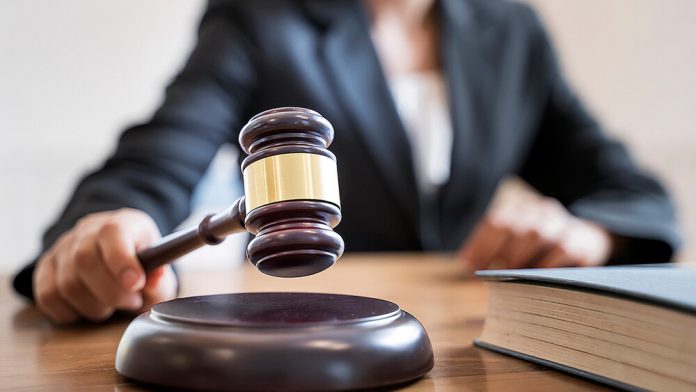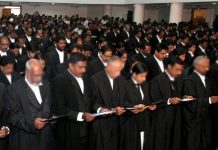This article is written by Bhavyika Jain, of Symbiosis Law School, NOIDA. In this article, we will get to know the procedure that an advocate has to go through to represent the state in criminal cases and the boundations that need to be followed.
Table of Contents
Introduction
A statement has been issued by the Bar Council of India to amend the rules and add a “mandatory clause” that new lawyers will need if they wish to practice in the higher courts. It has been stated that the new lawyers should have practiced for at least 2 years in the district court and any lawyer who desires to practice in the Supreme Court has to practice for at least 2 years in a High Court.
If the new rules are enacted, a new lawyer seeking to practise in the high court will be required to show a certificate from an older advocate with at least 15 years of experience at the bar, as well as a district judge, certifying that the young lawyer has practised in a district or taluka Court for at least two years.
Who is an advocate
An advocate is the one who publicly supports a cause or an issue. An advocate in the legal system is a person who represents a client in a court of law. He is the most crucial component of every country’s legal system as he is entirely responsible for the presentation of the case and, through his arguments, brings justice to the victim. The court of law renders its decision based on the facts and arguments he offers. He has the capacity and abilities to either make or break a case out of thin air. Because of the important position he plays in the judicial system, an advocate is often known as an officer of the court.
Only after seeing the client and learning the facts of the case, can the advocate construct the outline of the case. The final paperwork is created only after a comprehensive analysis of the facts and interpretation of the relevant statutes. It is the advocate’s job to put the pieces together in the appropriate order in order to build a solid case in the client’s favour.
Advocates Act,1961
The Advocates Act, 1961, is the amended version of the Indian Bar Council Act, 1926. With the motive to establish the laws governing legal practitioners, an act is passed by the Indian Parliament. The Bar Council of India developed such rules known as Bar Council of India Rules, which describes the sort of rules that apply to practise or essential requirements for legal education, with an emphasis on professional misconduct, under the authority granted by the Act.
It is the Act that establishes a legal foundation for legal practitioners, as well as for instructions for the formation of a Bar Council and an All-India Bar. Essentially, the Act lays down the procedure for registering with State Bar Councils, as well as the credentials that an individual must possess in order to practise law. The Bar Council of India is considered to be a supreme body that sets the rules and regulations for registration. It also establishes the level of excellence that a legal institution can maintain.
Rules on an Advocate’s duty towards the court
To act in a dignified manner
It is the duty of an advocate to act in a dignified manner while presenting his case and also while acting in Court. the advocate has the right and obligation to file his complaint with the appropriate authorities.
To respect the Court
Respect should be shown towards the court by an advocate by the way of talking or gestures made. An advocate must remember that maintaining judicial dignity and respect is vital for the existence of a democratic society.
To appear in a proper dress code
An advocate is bound to follow the proper dress code as prescribed under the Bar Council of India Rules. His appearance should be presentable in the court.
Refuse to act in an illegal manner towards the opposition
When it comes to opposing counsel or opposing parties, an advocate should not behave in any illegal manner. He must also utilise his best efforts to restrict and prohibit his client from acting in an illegal, improper, or unfair manner toward the judiciary, opposing counsel, or opposing parties in any issue.
Not to communicate in private
There should be no communication between an advocate and a judge with regard to any of the pending matters. An advocate should not use illegal or unethical measures, such as coercion or bribery, to sway a court’s decision in any subject.
To refuse to represent clients who insist on unfair means such as bribing, biasedness etc.
Any client who insists on utilising unfair or improper techniques should be refused representation by an advocate. In such cases, an advocate must disregard his judgement. He should not mindlessly follow the client’s directions. In correspondence and during courtroom arguments, he must use the language which is dignified and respectful. During pleadings, he shall not scandalously harm the parties’ reputations on false grounds. During the court proceedings, he shall refrain from using unparliamentary(disrespectful and nasty to the point of being unfit for a member of parliament) words.
To refuse to appear in front of relations
If the sole or any member of the bench is related to the advocate as a father, grandfather, son, grandson, uncle, brother, nephew, first cousin, husband, wife, mother, daughter, sister, aunt, niece, father-in-law, mother-in-law, son-in-law, brother-in-law, daughter-in-law, or sister-in-law, the advocate should not enter an appearance, act, plead, or practise in any way before a judicial authority. The Advocate should not represent the Client where he holds some kind of fiduciary relationship with the judge in order to respect the fairness in court’s judgements.
Rules on an Advocate’s duty towards the clients
Full and frank disclosure to client
An advocate should make all such full and frank disclosures to his client relating to his connection with the parties and any interest in or about the controversy as are likely to influence his client’s decision to engage him or continue the engagement at the start of the engagement and throughout the engagement.
Accepting briefs is a legal requirement
In the courts or tribunals, or before any other authority in or before which he wishes to practise, an advocate is required to accept any brief. He should charge fees that are comparable to those charged by peers of his standing at the Bar and the nature of the matter. He may refuse to accept a particular brief due to exceptional circumstances.
Refusing to leave the service
An advocate should not, in most cases, refuse to serve a client after agreeing to do so. He can only withdraw if he has a good reason and gives the client reasonable and sufficient notice. He will return any portion of the fee that has not yet accumulated to the client upon withdrawal.
He will not testify in cases in which he is a witness
A lawyer should not accept a brief or testify in a matter when he is a witness. If he has cause to anticipate that he will be called as a witness in the future, he should not continue to represent the client. Without jeopardising his client’s interests, he should leave the case.
Not to withhold information
An advocate for the prosecution in a criminal trial should ensure that the processes do not result in the conviction of the innocent. Any information or proof that proves the accused’s innocence shall not be suppressed by an attorney.
Section 24 of Criminal Procedure Code
Section 24 of the Criminal Procedure Code deals with the appointment of Public Prosecutors with not less than 7 years of experience as an Advocate in Court. It states that the central government or state government, after consulting with the high court, shall appoint a public prosecutor and may also appoint one or more additional public prosecutors to conduct any prosecution, appeal, or other proceedings in such a court on behalf of the central government or state government, as the case may be.
Section 24(7) contains the provisions that a person will be designated as a public prosecutor under sub-sections (1), (2), (3), and (6) only if he has practiced as an advocate for not less than 7 years.
Case laws
The Madhya Pradesh High Court recently heard a Public Interest Litigation (PIL) filed by a social worker regarding the appointment of junior advocates as State Panel Counsel.
This is one of the most recent cases with regard to the appointment of Law Officers under Section 24 of the Criminal Procedure Code. In the case of, Gyan Prakash vs. Government of Madhya Pradesh and Ors. (2014) a PIL was filed by Mr. Gyan Prakash, a social worker, alleging that the Advocate General Office has authorized a huge number of counsels to represent the State in criminal matters without being qualified for the minimum statutory eligibility as is prescribed under Section 24 of the Cr.P.C.
The Honourable High Court of Madhya Pradesh voiced its dissatisfaction with the contractual appointment of panel lawyers with a requirement of 7 years of experience to represent the state government in criminal proceedings such as sentence suspensions, bail applications, and so on. Having regard to the various issues raised and the earlier orders passed by the Court, the Court found it to be appropriate to direct the respondent – State to clarify its stand on the following grounds:
- If not, whether numerous courts are allocated to one accessible public prosecutor, and if so, what are the specifics?
- How many positions for Additional District Prosecution Officers, District Prosecution Officers, and Deputy Director Prosecution are empty in the State?
- What if promotions in the cadre of district prosecution officers and deputy director (prosecution) cannot be given against vacant quota posts to the degree not influenced by the honourable supreme court’s order, over which there is no disagreement?
- Is it possible for the state government to consider appointing additional district prosecution officers or district prosecution officers on a retainership basis for a set period of time to cover vacant public prosecutor positions?
- When Section 24(5) of the CrPC states that no person shall be appointed by the state government as the public prosecutor or additional public prosecutor for the district unless his name appears in the panel of names proposed by the district magistrate in consultation with the sessions judge, how can appointment on contract basis be made without recourse to Section 24(4) of the Criminal Procedure Code?
Amicus curiae Advocate Aditya Sanghi expressed before the court that the public prosecutors may be appointed for a minimum period of 3 years and it should not merely be dependent on the discretion of the political dispensation. The Respondent-State were directed by the Court to determine whether a public prosecutor is assigned to each court in all of the state’s districts or whether the prosecutor is assigned to numerous courts in criminal cases. So, it can be said that the honourable High Court has sought the State response concerning the appointment of advocates with less than 7 years of experience to represent the State in criminal cases.
The case of Vipin Kumavat vs. State of Madhya Pradesh and Ors. (2020), does not exactly deal with the appointment of public prosecutors under Article 24 of the Criminal Procedure Code but deals with the appointment of several posts such as Additional or Deputy Advocate General, Government Advocate, and Deputy Government Advocate.
Facts
In this case, the petitioner had met all of the prerequisites for appointment as a Law Officer in the state of Madhya Pradesh. The Petitioner followed the norms and principles outlined in the Application form for the appointment of Additional/Deputy Advocate General/Government Advocate/Deputy Government Advocate. The position requires 10 years of experience as an High Court Advocate with 20 cases and evidence from the candidate’s appearances in the previous three years.
Respondents 1 and 2, who were expected to supervise the selection of a Law Officer based on experience at the High Court, issued an order in which the Petitioner’s name was not found despite meeting all the conditions of such qualification. Respondents 3–7 were appointed as Law Officers in violation of the eligibility criterion. The Petitioner claimed that Respondents 3 to 7 were ineligible for the position of Law Officer because they lacked 10 years of experience in the High Court and Respondent 7 lacked dealing with 20 cases in the previous three years.
Held
In this case, however, it was determined that Respondents 3 to 7 were qualified for the position of a law officer. The Court found that the appointment of a Government Advocate is solely a matter of the State Government’s discretion and that the Court cannot interfere with the State Government’s decision because the appointment of a Government Advocate is merely a professional engagement. It was pointed out that the client has complete discretion over who he appoints as his counsel. The petitioner has no right to seek the position of Government Advocate on a first-come, first-serve basis.
The recommendations given by the State Government regarding the appointment of Law Officer are neither executive orders nor statutory regulations because they were not issued nor are they based on any provision of law under Article 309 of the Indian Constitution. The Court found that no undue favour was given in the selection of Law Officers and that a sufficient procedure for evaluating the Law Officers’ performance was in place. The Law Officers were chosen based on their time in the bar, their experience, their merit, and their ability as an advocate. As a result, the Court determined that there was no reason to overturn the contested order appointing Law Officers.
Conclusion
Inexperienced and new advocates may not be able to conduct the case efficiently, thus Law Officers and advocates representing the state must be carefully picked and appointed. Furthermore, state issues require efficient and qualified lawyers to assist in the improvement of the justice system. Inexperienced lawyers will not only be of less help to the state but also to the court.
In order to have efficient and experienced lawyers representing the state, a suitable selection procedure and qualifying criteria must be scrupulously followed, especially when the matters at hand are in the general public’s interest.
References
- https://www.lawyersclubindia.com/articles/can-advocates-with-less-than-7-years-of-experience-represent-the-state-in-criminal-cases-14126.asp
- https://thewire.in/law/bar-council-of-india-lawyers-minimum-experience
- https://www.indiacode.nic.in/show-data?actid=AC_CEN_5_23_000010_197402_1517807320555§ionId=22390§ionno=24&orderno=24
- http://www.barcouncilofindia.org/about/professional-standards/rules-on-professional-standards/
Students of Lawsikho courses regularly produce writing assignments and work on practical exercises as a part of their coursework and develop themselves in real-life practical skills.
LawSikho has created a telegram group for exchanging legal knowledge, referrals, and various opportunities. You can click on this link and join:
https://t.me/joinchat/J_0YrBa4IBSHdpuTfQO_sA
Follow us on Instagram and subscribe to our YouTube channel for more amazing legal content.
 Serato DJ Crack 2025Serato DJ PRO Crack
Serato DJ Crack 2025Serato DJ PRO Crack











 Allow notifications
Allow notifications


